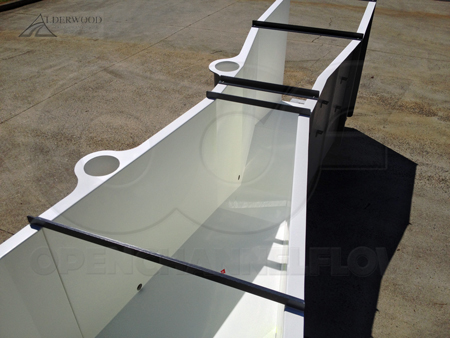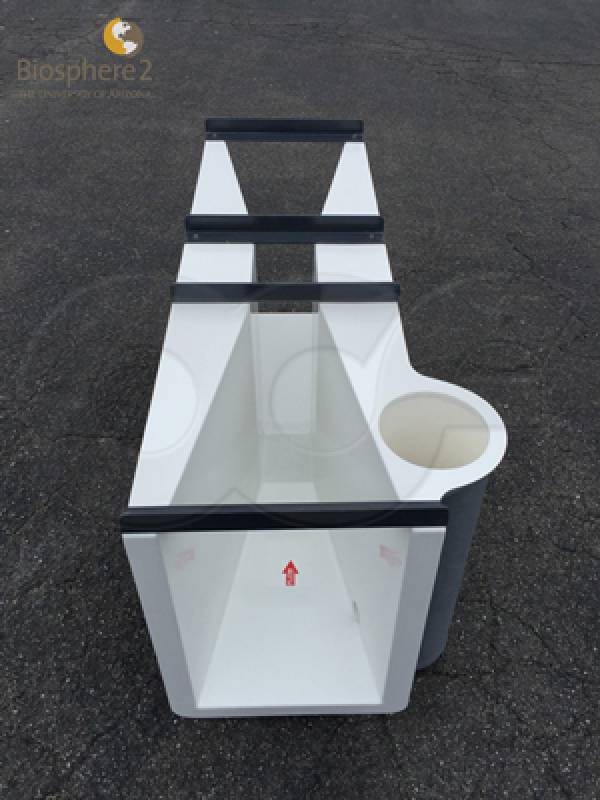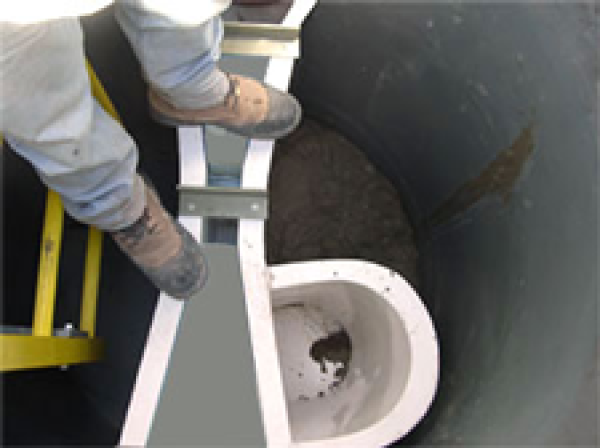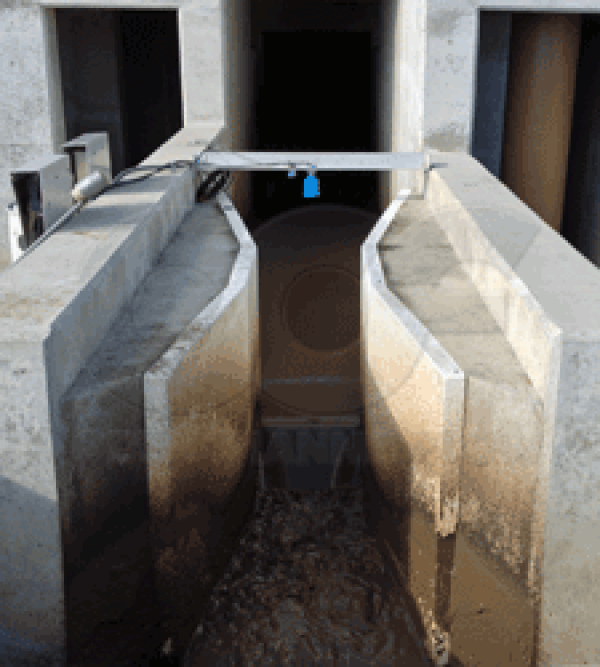This website uses a variety of cookies, which you consent to if you continue to use this site. You can read our Privacy Policy for
details about how these cookies are used, and to grant or withdraw your consent for certain types of cookies.
Flume Stilling Wells and Headworks
 We are frequently asked if a stilling well can or should be used on a flume at the headworks of a wastewater treatment plant (WWTP). The answer is: no, a stilling well should NOT be used at a headworks – even if the flow conditions are turbulent.
We are frequently asked if a stilling well can or should be used on a flume at the headworks of a wastewater treatment plant (WWTP). The answer is: no, a stilling well should NOT be used at a headworks – even if the flow conditions are turbulent.
The reason for this is simple: stilling wells do exactly what their name says – still the flow. Headworks flows – even when they have gone through upstream screening / grit separation – have a considerable amount of suspended materials in them. If a stilling well is used on a flume, these sediments WILL SETTLE OUT over time. This in turn will become a maintenance issue for the operators and our experience has shown that eventually the stilling well will be abandoned and a flow meter’s sensor moved so that it is measuring the main flow in the flume itself.
Now one reason a stilling well is used is to help calm turbulent flows - but this should only be the case on CLEAN flows – it should NOT be done on sediment laden headworks flows. A better solution to calming turbulence or conditioning unbalanced flows is to use an energy absorbing structure upstream of the flume. These structures help to slow high velocity flows, normalize the velocity profile distribution, and help calm turbulence.
This prohibition also extends to the use of stilling wells on solids / sediment laden flows further in the treatment plant’s process streams (typically RAS / WAS). While the rate of sedimentation may not be a quick as at the headworks, sedimentation will occur.
Related Blog Posts
Explore more insights in our blog.

LOCATIONS IN ATLANTA, GA & BOISE, ID




